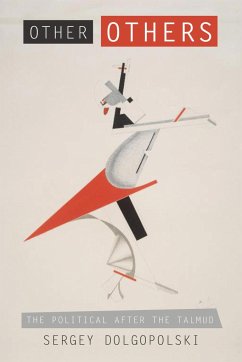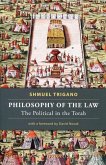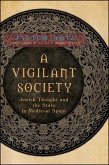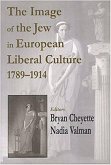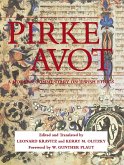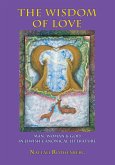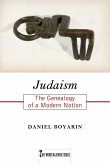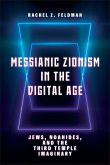"Rarely have I learned so much as in these pages. Where political readings of the Talmud have focused on kings, priests, and states, Dogolpolski examines the interaction of characters who flash up at the same time that they are marked by erasure, in order to develop a revelatory new concept of the political."-Tracy B. Strong, University of Southampton, UCSD "Dolgopolski's Other Others is the most ambitious work I have read in the field of Jewish political and philosophical though in some time. It is creative, synthetic, well written and conceptually clear. Dolgopolski is a master of his material and an innovator. The combination makes for a scintillating piece of scholarship."-Sarah Hammerschlag, University of Chicago Denying legal and moral existence to those who do not belong to a land, while tolerating diversity of those who do, stabilizes a political order-or does it? Revisiting this core problem of contemporary political theory, Other Others turns to the Talmud as an untapped resource for a conception of the political our philosophical and theological traditions have effaced. Dolgopolski introduces to political theory the concept of "other others," those who are not and cannot be marked as bearing any "original" belonging to a recognized land. Moving between the modern political figure of "Jew" and the late ancient texts of the Talmud, the book ultimately arrives at a demand to think earth anew, beyond notions of territory, land, nationalism or internationalism, or even universe that have hitherto defined it. Thinking earth anew requires a new concept of the political, no longer expressed in terms of sovereignty or democracy or of a political theology whose friend-enemy distinction has no place for the other others who animate the Talmud's ever disappearing and reemerging political paradigm. Philosophical and theological approaches to the political have tacitly elided what the Talmud affords. This book oriented jointly to the Talmud and its afterlife and to contemporary political theory, powerfully shows how the two can inform each other, developing alternatives to the us/them dichotomy that continues to plague even the most liberal conventional accounts of politics. Sergey Dolgopolski is Associate Professor of Comparative Literature and Jewish Thought and Gordon and Gretchen Gross Professor of Jewish Studies at SUNY Buffalo.
Hinweis: Dieser Artikel kann nur an eine deutsche Lieferadresse ausgeliefert werden.
Hinweis: Dieser Artikel kann nur an eine deutsche Lieferadresse ausgeliefert werden.

